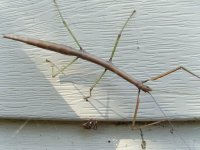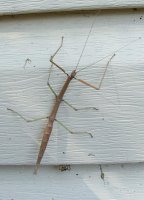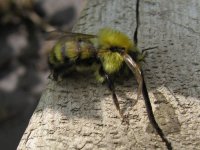Farmerlon,
WELCOME! Enjoy your stay...
Yes those bugs do teach you more then most are willing to admit.The first response I get is what spray do I use!?
my reply; I don't use sprays what kind of bugs do you have.
I would ask to describe it and that is where the responses floor me... I love them!
I can joke about them for a while! "Oh, it is black and has leggs"
"Ok..that helped me much, is there 1 or 50? What is he doing that you don't like?
Where did you find him? Do you want me to get him for you *LOL
I'll give him a safe home here*LOL they usually think I am absolutely nuts!
I do not think that bothers me a bit...Actually it makes me smile!
I 'll tell you how to get rid of them if they are not needed Tell me more!*
One lady stated no I just want to kill them all ! I told her I'm sorry I can't help you,
I usually do not kill any bugs.
She went to use wd40 or something like that!
I love information books with pictures! My thought is if the book is under 5dollars and I get one piece of useful information it was worth it.
Annette99,
I have encountered many jump out of the skin situations.I bet ...first you get startled then flip out for a few*LOL
There once was this group (I would be shocked if it were the same one!) of hoppers that just loved to cross my daughter no matter where she went, if she was outside he /she would cross her. No matter what door or garden she was in he would cross her. Even went on walks she would get crossed. One even attached itself to the shirt and wouldn't let go! They loved her maybe the soap she used*lol .She questioned why don't they bother me I said because they think I am a moving tree sure don't smell pretty like you !
I worked that whole season to rid her of the fear of the hopper what a chore!
But it was fun she is such a girlie girl*lol.
I then made an engraved wooden
sign * CAUTION CROSSING HOPPERS * which helped her quit a bit.
Having her laugh about it did the trick (more or less depends on what this new season will bring).
She now talks about it and states she doesn like hoppers but she does smile about it.
Nothing like trying to reason with a screaming little girl *lol.Sorta like commanding a beagle to "come" when she sees a squirrel*LOL Not happening all ears are shut down!
Kale






